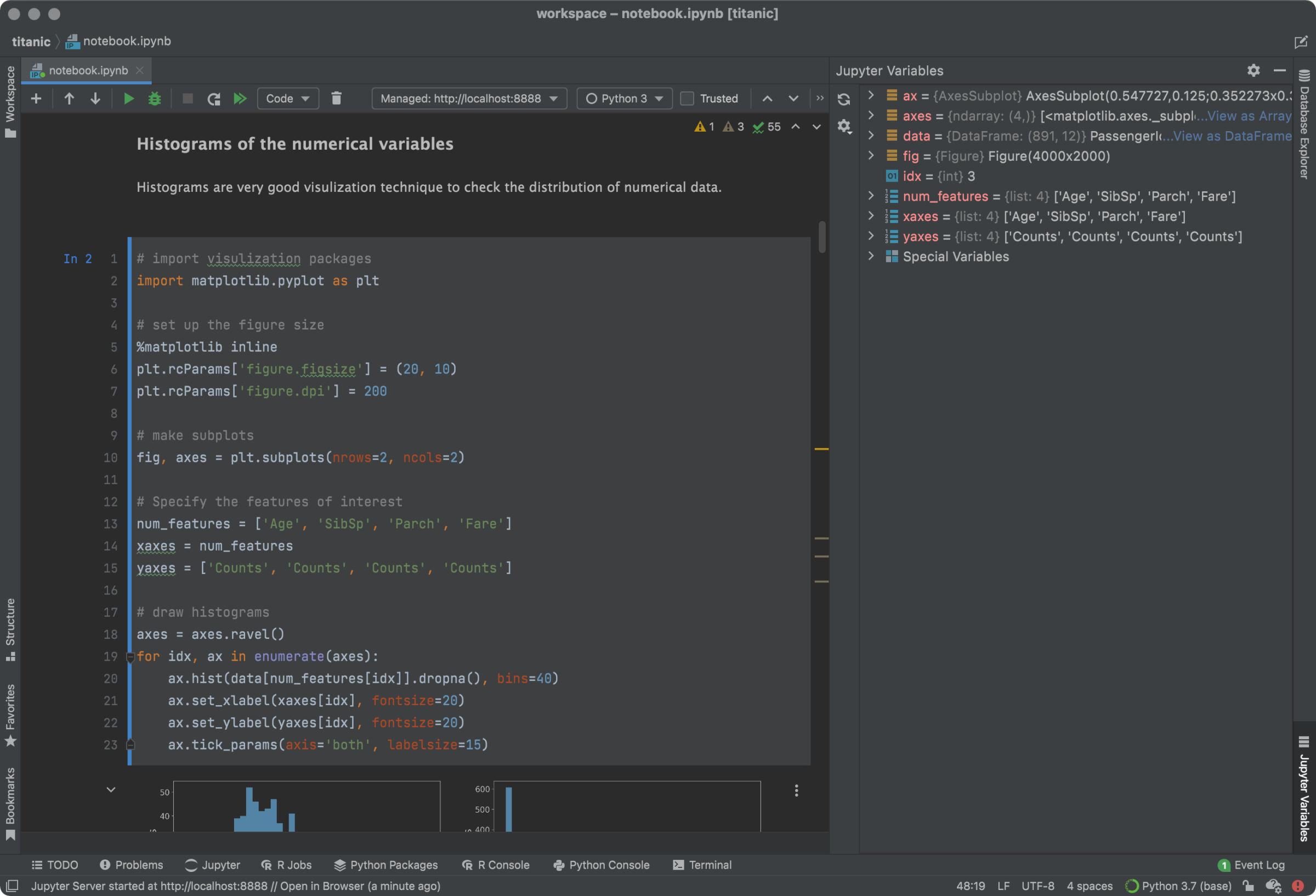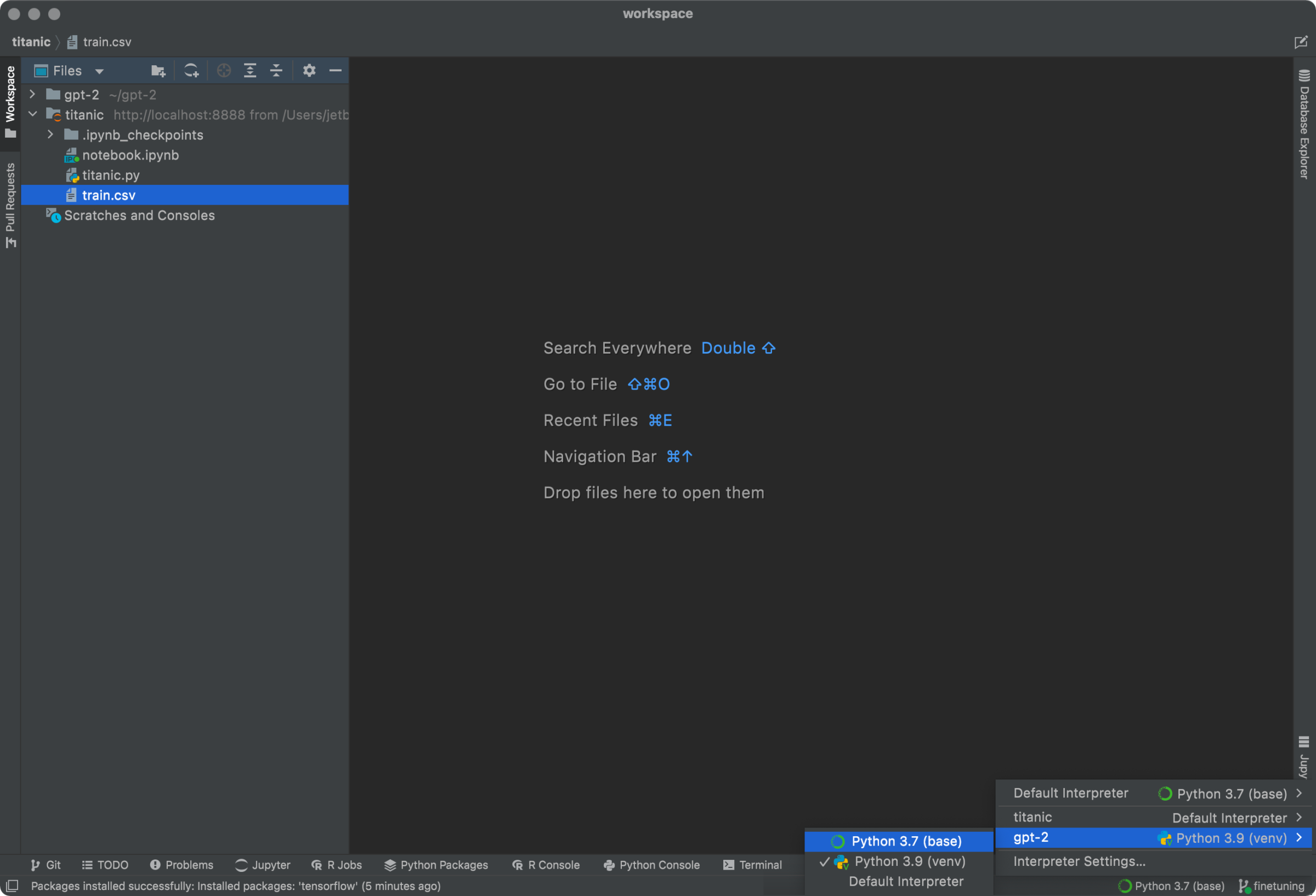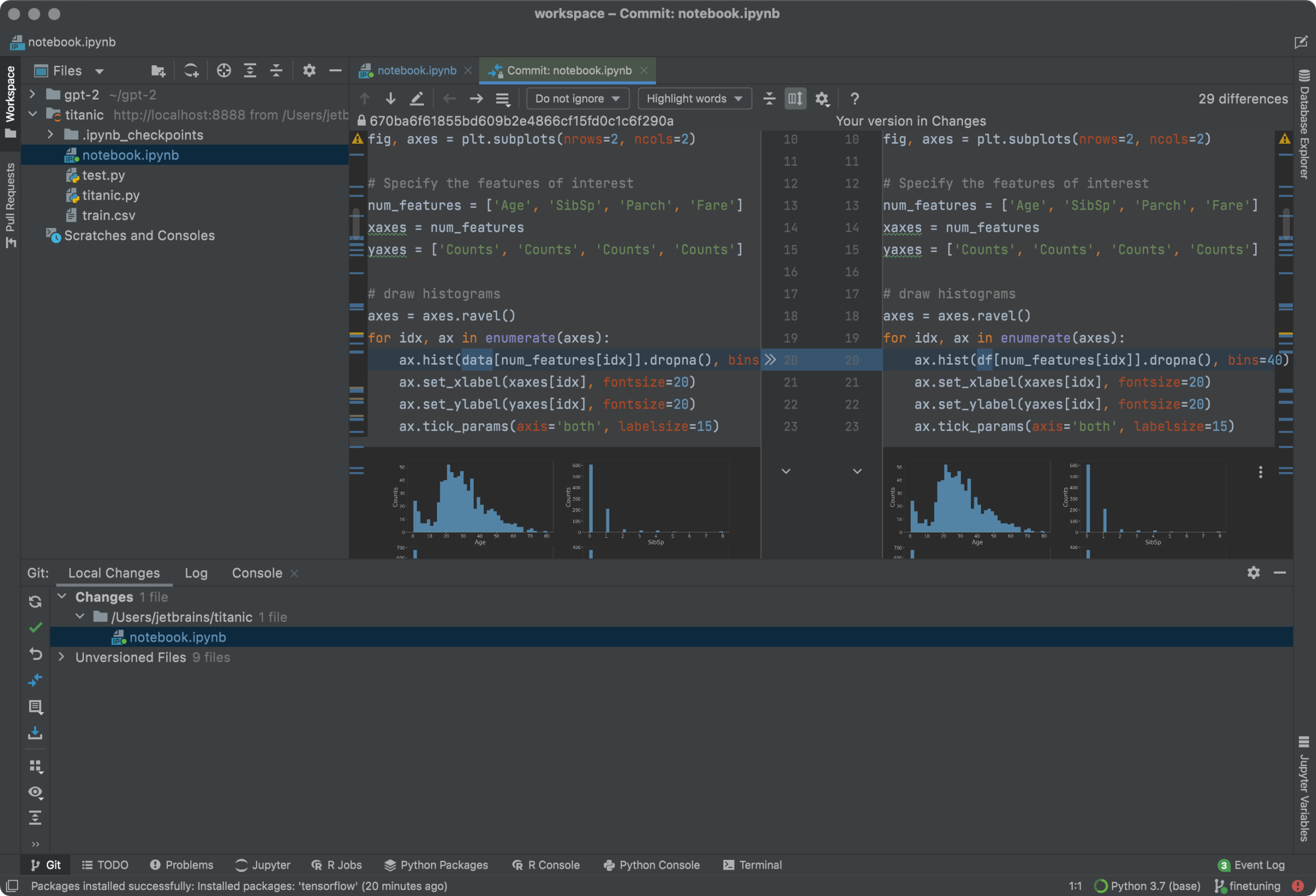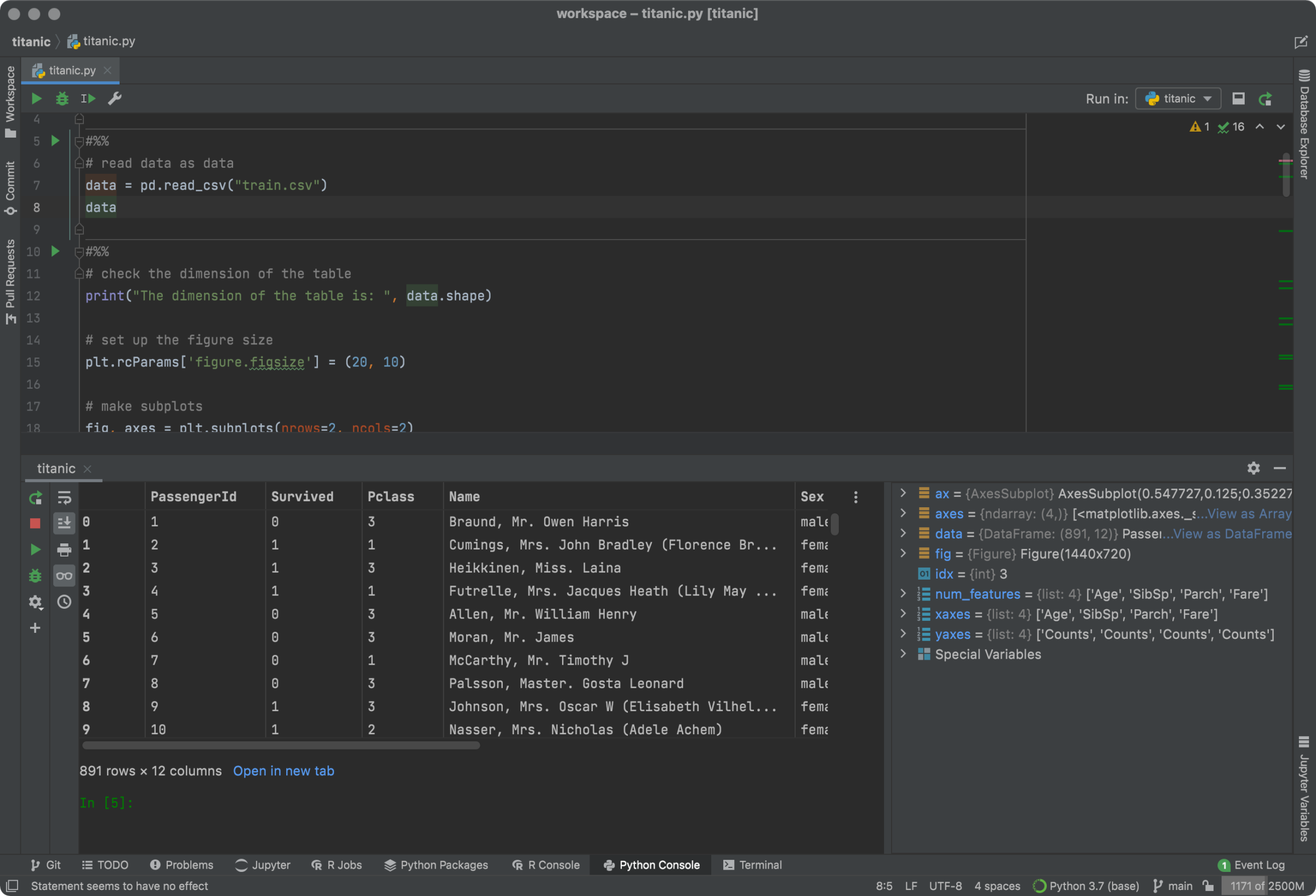DataSpell EAP 19: Jupyter Variables, Workspace Interpreters, Diff for Notebooks, PyCharm, and More
This is the first update since we made the DataSpell EAP public last month!
First of all, we’d like to thank everyone who tried DataSpell and shared their feedback. Despite all of the bug reports that we received, users are quite happy about the overall experience. As for the bug reports, our team is hard at work fixing them as we speak.
30 days after the first public EAP announcement, we’re excited to let you know about the second EAP build which includes several major improvements.
What’s new in the new EAP build?
Jupyter variables tool window
If you work with local notebooks, you will find a new Jupyter Variables tool window on the right-hand side. In earlier builds, the only way to see the variables in the selected notebook was to use the Variables tab in the Jupyter tool window. Now, you can see the current variables next to the notebook

Workspace-aware interpreter widget
Another noticeable improvement is the updated Interpreter widget available in the status bar. Before, the widget appeared only if a notebook or a Python script was opened. The widget used to be shown only in the interpreter related to the open file. Now, the updated widget is always shown. You can click it to preview and change the interpreters for all attached folders.

Human-readable diff for notebooks
When you store Jupyter notebooks in Git, it may be inconvenient to track local changes because Git treats notebooks as JSON files by default. With the new DataSpell EAP build, you can see local changes side-by-side for both cells and their outputs:

Interactive table outputs in Python Console
The outputs of pandas.DataFrame, pandas.Series, and numpy.array types in the Python Console are now displayed as fully interactive and scrollable tables. This is very similar to Jupyter notebook outputs.

Other improvements
The update also brings a number of significant bug fixes. Notebooks now correctly display the ASCII progress logs (like those produced by TensorFlow or PyTorch libraries). You can find the complete list of the changes in the release notes.
PyCharm
PyCharm 2021.3 EAP bundled DataSpell support for local notebooks. Now PyCharm Professional users can work with local Jupyter notebooks to analyze data and prototype ML models.
As a Python user, you may be involved in different activities, such as software development, exploratory data analysis, and prototyping ML models. How are you supposed to choose between DataSpell and PyCharm? While we plan to elaborate further, the rule of thumb is the following:
If your primary activity is software development, you should use PyCharm. If your primary activity is data science, you should use DataSpell.
Of course, if you’re equally involved in software development and data science, you have the choice to either stay with PyCharm or use both products side by side.
Just as PyCharm is an IDE for professional software developers, DataSpell is an IDE for professional data scientists.
Roadmap
For the next couple of EAP builds planned for this year, our roadmap includes:
- Better support for remote notebooks (including support for HTTPS and SSH)
- Support for SSH interpreters
- Unification of cell actions across Jupyter notebooks and Python scripts
- Further improvements related to Python Console
- More capabilities for handling multiple attached folders (like pre-selecting the correct interpreter)
- Additional improvements for rendering outputs in notebooks
Feedback
If the roadmap is missing anything important, please reach out and share your ideas with us!
As always, please make sure to report bugs directly to our tracker and join our Slack workspace if you haven’t done so yet! The workspace is very helpful if you want to share feedback or ask questions.
That is all the news we have for today. Please give DataSpell a try, and let us know what you think!
Stay tuned for more great news, and take care!
The DataSpell team
Subscribe to JetBrains Blog updates





